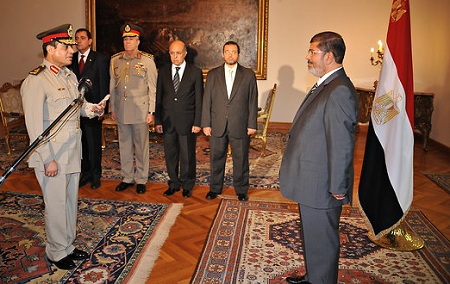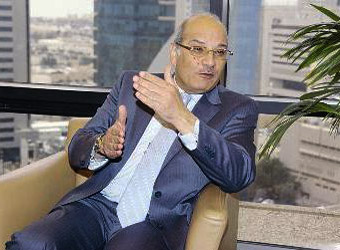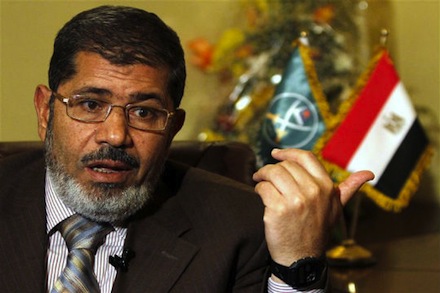It’s hard to believe that 10 days ago, Egyptian president Mohammed Morsi seemed firmly in control of events in the Arab world’s most populous country — he had just been instrumental in achieving a ceasefire between Palestinians in Gaza and Israel, and Egypt’s constituent assembly, despite some difficulties, was plodding its way toward the draft of a new constitution for a newly democratized nation.![]()
Today, of course, Morsi stands at the most controversial point of his young presidency, defending the unilateral decree he announced on November 22 asserting extraordinary (if temporary) presidential powers, and hoping to push through a referendum in just 12 days — on December 15 — over a constitution rushed out by the constituent assembly just last week.
Morsi announced the referendum over the weekend, which means there will be no shortage of tumult in the days and weeks ahead.
I’ve not written much about the latest political crisis in Egypt, the latest act in what seems like an unending drama that began with the Tahrir Square protests in January 2011 that pushed longtime Egyptian president Hosni Mubarak from office, through over a year of military rule by the Supreme Council of the Armed Forces (SCAF), the 2011 parliamentary elections and their subsequent cancellation, even more parliamentary elections and their (second) disqualification, and a roller-coaster presidential election that ended with Morsi’s narrow victory over former Air Force commander Ahmed Shafiq on June 24.
Morsi, just over five months into his tenure as Egypt’s president, has argued that the decree is necessary to safeguard Egypt’s strides toward democracy, and if he wins his latest gambit, he’ll have pushed Egypt from the post-revolutionary phase into something more enduring, although at the cost of an Egyptian constitution that remains incredibly controversial and at the risk of having enacted it in a manner entirely inconsistent with democratic norms and the rule of law.
Pro-revolutionary forces took to Tahrir Square last week once again in opposition to Morsi, and pro-Islamist forces counter-protested over the weekend in favor of Morsi. But with now, apparently, less than two weeks to go until the constitutional referendum, it’s worth taking a look at where each of the key players in the unfolding events stand. Continue reading Morsi’s Egypt spirals further into chaos with apparent Dec. 15 constitutional referendum









